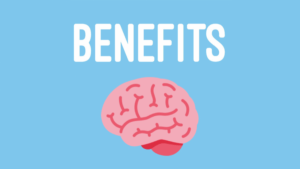Contents
- 1 What Is Eclectic Therapy?
- 2 How Eclectic Therapy Works?
- 3 Benefits Of Eclectic Therapy
- 4 Types Of Therapies Available
- 5 When Is Eclectic Therapy Used?
- 6 Cost Of Treatment for Eclectic Therapy
- 7 What To Expect In Eclectic Therapy?
- 8 Tips On How To Get Started With Therapy
- 9 Finding The Right Eclectic Therapist
- 10 Conclusion
What Is Eclectic Therapy?
Eclectic therapy is the type of psychotherapy that is chosen by the client or patient to help with their needs, self-improvement, and well-being. The therapist will work with the individual to find a treatment plan. The treatment plan may include a combination of forms of psychotherapy and/or medication.
Eclectic therapy is a type of psychiatric treatment that can be voluntary or involuntary. It is often done to deal with mental health issues. The treatment is typically used for people who are exhibiting self-destructive behavior, like substance abuse or suicidal thoughts.
Eclectic therapy is sometimes called psychotherapy. But it’s not the same thing as talk therapy because there isn’t a therapist in the room with you. Eclectic therapy is not the same as conversion therapy, which aims to change a person’s sexual orientation or gender identity.
How Eclectic Therapy Works?
Analogous to physical health, there is a known treatment for most mental health conditions. People who have a serious psychiatric condition should consult a professional before selecting any therapy.
Eclectic therapy can be voluntary or involuntary. It is often done to deal with mental health issues, like substance abuse or suicidal thoughts. People who have a serious psychiatric condition should consult a professional before selecting any therapy.
Eclectic therapy is not the same as conversion therapy, which aims to change a person’s sexual orientation or gender identity. It’s also used for people who are exhibiting self-destructive behavior, like substance abuse or suicidal thoughts. Eclectic therapy typically happens in a mental institution and there isn’t a therapist in the room with you.
Eclectic therapy typically happens in a mental institution and there isn’t a therapist in the room with you. When you’re in an institution, it’s involuntary, but it is still eclectic therapy because you chose to go there. Your state might have laws that allow people to be required to receive voluntary eclectic therapy if they are exhibiting signs of suicidal behavior or substance abuse or another mental health condition.
Benefits Of Eclectic Therapy

The first benefit is that you have control over how often you meet, the length of the sessions, and what kind of treatment you would like to receive. There are many benefits to having this type of freedom in treatment. The other benefit is the ability to choose the best beneficial approach for your needs and goals, like CBT (cognitive-behavioral therapy) or DBT (dialectical behavioral therapy). There are several different types of therapies available that people may benefit from; it can be very useful to try out a few different therapies until you find one that is best for you.
Types Of Therapies Available
There are many different types of therapy like cognitive-behavioral, psychodynamic, and even couples therapy. You can also find therapists who specialize in your specific needs like anxiety disorders, depression, grief counseling, alcohol abuse/dependence, personality disorders, and even for children. Your insurance might cover some types of therapy and not others. Also, there are different approaches to psychotherapy like Adlerian psychology, behaviorism, cognitive-behavioral therapy (CBT), family systems theory, gestalt therapy, humanistic counseling, Jungian psychology, person-centered approach, rational emotive behavioral therapy (REBT), psychoanalytic, relaxation therapy, transactional analysis, and more.
When Is Eclectic Therapy Used?

Eclectic therapy is used when someone is feeling under-challenged or unmotivated at work. Sometimes it is helpful to talk with a therapist or counselor about what you can do at work to feel better and get more out of your job.
There are many reasons people procrastinate. Here are some examples of what might be causing you to defer tasks: irrational beliefs, unrealistic expectations, perfectionism, fear of failure, being overwhelmed by too many tasks at hand, lack of specific goal-setting techniques, and more. These all need to be diagnosed before specific treatment can be determined. In general, terms, treating procrastination will involve setting up a plan that will help the person get started with their task in an orderly manner. If you have been struggling from time to time, set up a time to go over what might be causing you to delay getting started with a specific task. As a result of this meeting, you will be able to create an action plan that will help break the procrastination cycle and begin working on your tasks in a more reasonable amount of time.
Cost Of Treatment for Eclectic Therapy
The cost of treatment for eclectic therapy can differ based on the therapist and different factors. For instance, the cost of treatment can depend on how many sessions they offer. There also could be a set amount per session or it could be related to the length of the appointment (15 minutes, 30 minutes, 45 minutes). Some therapists might want payment when you make an appointment and others may charge by the length of the appointment (15 minutes, 30 minutes, 45 minutes). Rather than by what type of payment plan you choose (weekly, bi-weekly). You might find that some therapists and counselors provide their services in the evenings and weekends. So that this doesn’t take up too much time from work.
There are various treatments available that can help treat procrastination. If you are struggling, then you should speak with your therapist or counselor about the right course of action for you to feel better and begin working on your tasks in a more reasonable amount of time.
What To Expect In Eclectic Therapy?
 In eclectic therapy, you may find that some therapists and counselors provide their services on evenings and weekends. So that this doesn’t take up too much time from work. It can take a few sessions before you start to feel any better. So don’t be in a hurry if you don’t see immediate results. If after a few sessions with your therapist or counselor, you are not feeling any benefit. Then you should speak with them about your concerns. This is also the time to consider whether or not it’s time to find someone else who may suit your needs better.
In eclectic therapy, you may find that some therapists and counselors provide their services on evenings and weekends. So that this doesn’t take up too much time from work. It can take a few sessions before you start to feel any better. So don’t be in a hurry if you don’t see immediate results. If after a few sessions with your therapist or counselor, you are not feeling any benefit. Then you should speak with them about your concerns. This is also the time to consider whether or not it’s time to find someone else who may suit your needs better.
If you are struggling, set up a time to go over what might be causing you to delay getting started with a specific task. As a result of this meeting, you will be able to create an action plan that will help break the procrastination cycle and begin working on your tasks in a more reasonable amount of time.
Things To Keep In Mind
The first thing is that it can take many sessions before you start to feel better. But it is important to remember that this process takes time. Do not be discouraged if you do not see immediate results. It can also take some time before you are able to find someone who will suit your needs and give the right treatment for your symptoms. If you are not feeling any benefit from your therapist or counselor, then you should speak to them about your concerns. If the problem persists, then it might be time to find someone else.
Tips On How To Get Started With Therapy
Some of the tips for starting with therapy or counseling include:
- Find somebody who will be a good match for you. If you don’t feel like the therapist or counselor is a good match for you. Then it might be time to find somebody else.
- If you feel like the therapy or counseling is not helping, speak to your counselor about it.
- Look for a therapist or counselor who works on evenings and weekends. So that this doesn’t take up too much time from work.
- Find out how much sessions will cost, if there is a set amount per session or payment by the length of the appointment.
- Decide on a plan for payment upfront, such as weekly or biweekly. For certain therapists and counselors, you might have to pay when you make an appointment or they could charge per session. To find out if this is the case before your first meeting.
- Tell your therapist your expectations and know that it can take time before you see results because change is a process.
- Remember to give your therapist and yourself the benefit of the doubt and allow for growth and improvement.
Finding The Right Eclectic Therapist

Ask friends, family members, and even co-workers who might be seeing a therapist if they can recommend one to you. Another good way is to look online at the websites of professional organizations.
It is important to make sure that you feel comfortable with your therapist or counselor’s method of treatment which may take a few appointments to find out. If you do not feel comfortable with the therapist, it is best to find someone else in order to make sure you are getting the most benefit from your treatment. Once you have found a person that has the right credentials for your needs, then you can schedule an appointment. You might need to wait for an available time slot when calling therapists or counselors. But once you are able to schedule an appointment you should make sure to look at their availability and how much time is left before your first session begins. You can then set up what type of payment plan will work best for the sessions that you need (weekly, bi-weekly, etc).
Conclusion
Eclectic therapy is a treatment that can help people who struggle with several things. Like unrealistic expectations, perfectionism, fear of failure, and having too many tasks at hand, and more. It takes time to see results from this type of therapy. So don’t be sad if you do not feel any benefit after the first couple of sessions. If after a few sessions with your therapist or counselor, you are not feeling any improvement in these symptoms. Then it might be time to find someone else who may suit your needs better. Set up an appointment with them where they will work on breaking the procrastination cycle for you. And give specific tips on how to begin working on your tasks in a reasonable amount of time.
If you are looking for affordable Online Counseling MantraCare can help: Book a trial therapy session



